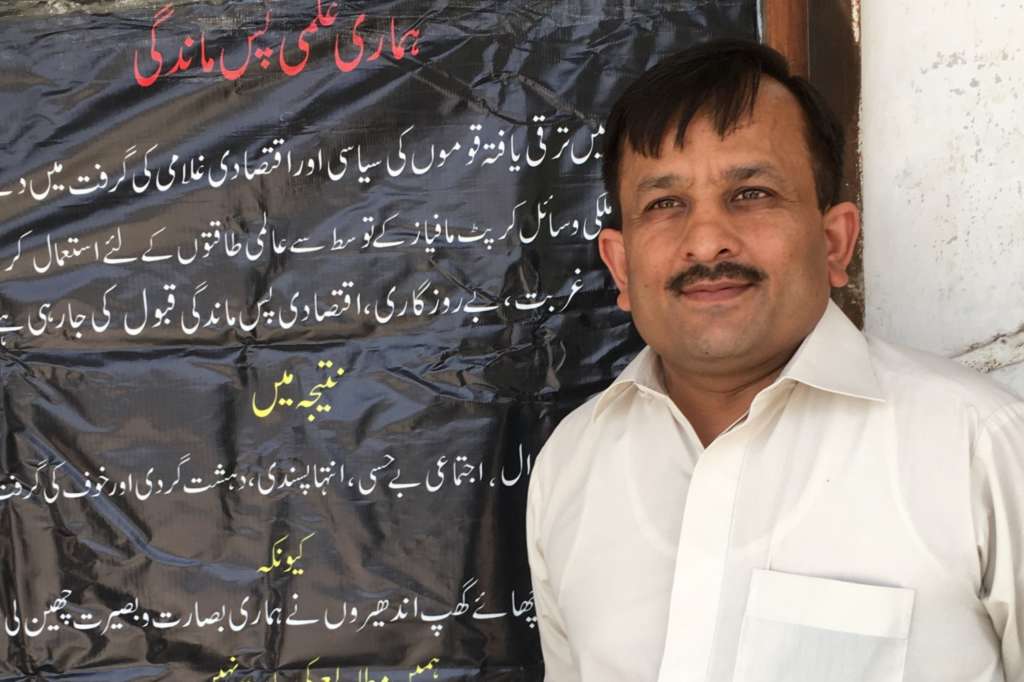Peshawar, Pakistan-The demise of Shaheen Books could easily be the story of any independent bookstore in the United States overtaken by broad cultural and technological changes, but with a terrorist plot twist.
In part it is a familiar saga of people losing interest in reading, becoming addicted to electronic gadgets and finding less time to browse and chat as the world moves faster — even in an ancient crossroads city famed for its timeless tea stalls and historic “Story Tellers’ Bazaar.”
But that is just the final chapter in a long, sad tale of what one commentator called the “intellectual bankruptcy” of this bustling provincial capital and university town, which once boasted a dozen bookstores as well as printers, public reading rooms and libraries, and cultural centers run by the U.S., British and French governments where anyone was welcome to browse and borrow.
“This was an honorable business,” Riaz Gul, the owner of Shaheen Books, said sadly, standing in the gutted space that he plans to convert to a health and beauty supply shop. The shop’s closure on Aug. 31 made it the latest bookstore to shut down or move away in recent years. Saeed Book Bank, the largest, relocated to the capital, Islamabad, a decade ago.
For the past few weeks, a large black poster has hung in the store’s front window. It is an arresting epitaph, written in Urdu script. “The entire society is in the grip of moral degradation, senselessness, extremism and terrorism because of their ignorance,” it declares. “Libraries and bookstores have no meaning for such society. Under such circumstances, we are forced to close down.”
The posthumous protest was written by Gul’s father, Mustafa Kemal, a writer who founded Shaheen Books in 1991 after the death of his father, a former political activist and daily newspaper publisher who got his start in the tumultuous era of the 1940s, when Pakistan was partitioned from India.
Kemal, now 78, likes to recall the intellectual heyday of the bookstore’s early years, when Peshawar was a hotbed of international intrigue, full of foreign visitors and educated exiles from the civil war in neighboring Afghanistan.
“Doctors, professors, literary people who had the habit of reading would come in and we would have discussions,” he recounted one recent morning, over tea and pastries at his home. “There were a lot of foreigners working here for the U.N. and other places. In the evenings they would come and buy books, too.”
That was before two powerful, contradictory trends began sweeping this vast, impoverished Islamic republic of 182 million: the increasing influence and intimidation of fundamentalism, and the relentless commercial and technical drive toward Western modernization.
The first phenomenon was seeded by the export of interpretations of Islam and a holy war against the Soviet Union in Afghanistan in the 1980s. Peshawar, a hub of traditional ethnic Afghan Pashtun culture and trade in North-West Frontier Province, was especially susceptible.
Several mosques and seminaries in the region trained students to join the Taliban militia in Kabul, and after their regime there was defeated in 2001, a like-minded religious party won political control of the province. Theaters and musicians’ workshops were forced to close, anti-Western rallies were held and religious reading material in Urdu was widely displayed. The foreign culture centers shut down.
Over the past decade, suicide bombers targeted schools, markets, churches, mosques and military facilities. Qissa Khawani, the famed Storytellers’ Bazaar, was the site of a 2013 bombing that killed 41 people. Sufi shrines were also attacked.
The chilling effect led bookstore after bookstore to shutter or refocus on the more mundane business of selling stationery or school texts. Some stopped ordering expensive books in foreign languages or by international authors, shifting their emphasis to locally published religious books and works of national history in Urdu.
The second phenomenon that slowly killed off Shaheen Books and its competitors was the growing public attraction to modern Western consumerism, especially in the form of electronic devices, which has swept Peshawar even as many inhabitants cling to other traditions, with women wearing toffee-colored burqas in public and boys driving flocks of sheep through the streets.
Over the past few years, the old city has developed rapidly, with new apartment buildings, shopping malls and restaurants flourishing, although government complexes are now fortified by thick walls and barbed wire. Many of the new shops feature fashions, shoes, and electronic devices such as cellphones and tablets.
The Washington Post
